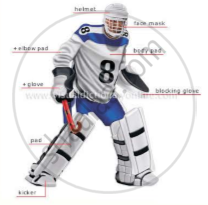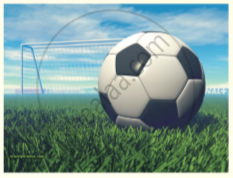Advertisements
Advertisements
प्रश्न
List out the action words in the poem.
Dive, dip, snaps, __________, __________, __________, __________, __________
Find out the meanings of these words.
उत्तर
Dive, dip, snaps, soars, rides, climbs, pulls, falls, run, blows, goes, flaps
APPEARS IN
संबंधित प्रश्न
Thinking about Poem
What is the meaning of “anchoring earth” and “earth cave”?
After having read the story, you realise the anguish of the illiterate adults. You want to make your friends aware of it and contribute something in bringing about a change in the lives of the illiterate adults. Deliver a speech in the morning assembly at your school about the Importance of Adult Education and ways to implement it.
Read the following to make your speech effective:
The introduction of a speech is like the nose of an airplane. The nose sets the course and leads the plane off in a specific direction. A good introduction sets the direction of your speech by
- getting the attention of your audience
- introducing your topic
- stating your central idea or purpose
- briefly identifying the main points
- making your audience eager to hear what you have to say
In pairs, study the completed sentences in 5 above. You will notice that words like a little and much go with certain nouns. Are these nouns Countable [C] or Uncountable [U]?
Form pairs - one student will read the text for 'Hockey', and the second student will read the text for 'Football'.
Hockey

The game starts when the umpire blows his whistle for the opening pass-back. The passback is made at the centre of the field to start the game (also after half- time and after each goal is scored). The ball, which may be pushed or hit, must not be directed over the centre line. All players of the opposing team must stand at least 5 yard from the ball and all players of both teams, other than the player making the pass-back must be in their own half of the field.
There are two umpires to control the game and to administer the rules. These umpires are the sole judges of the game. The umpires are responsible for keeping time for the duration of the game.


In front of each goal is an area known as the penalty area. This is a rectangular area, 40.2m wide and extending 16. Sm into the field where the goalkeeper operates.
A standard adult football match consists of two periods of 45 minutes each, known as halves. Each half runs continuously, meaning that the clock is not stopped when the ball is out of play. There is usually a 15-minute half-time break between halves. The end of the match is known as full-time. Anytime during the match, a team can substitute upto three players maximum.
The game is controlled by a referee who is the official timekeeper for the match, and may make an allowance for time lost through substitutions, injured players requiring attention, or other stoppages. There are also two linesmen who keep guard of the touchlines or sidelines, signalling when the ball crosses the boundary lines. The referee alone signals the end of the match.
Handling the ball deliberately, pushing or tripping an opponent, or hitting a player from behind are examples of fouls, punishable by a direct free kick or penalty kick depending on where the offence occurred. Other fouls are punishable by an indirect free kick.
The referee may punish a player's or substitute's misconduct by a caution (yellow card) or sending-off (red card). A player is given a yellow card is said to have been 'booked'.
• Red - Serious misconduct resulting in ejection from the game. If a player has been sent off, no substitute can be brought in his place.
Some are like fields of sunlit corn,
Meet for a bride on her bridal morn,
Some, like the flame of her marriage fire,
Or, rich with the hue of her heart's desire,
Tinkling,luminous,tender, and clear,
Like her bridal laughter and bridal tear.
Read the lines given above and answer the question that follow.
Mention the colours of the bangles in this stanza. What do they represent?
Old Kaspar took it from the boy,
Who stood expectant by;
And then the old man shook his head,
And,with a natural sigh,
"Tis some poor fellow's skull," said he,
"Who fell in the great victory.
"I find them in the garden,
For there's many here about;
And often when I go to plough,
The ploughshare turns them out!
For many thousand men,"said he,
"Were slain in that great victory."
Read the lines given above and answer the question that follow.
What did Kasper say?
But even as he approached the boy, Mr. Oliver sensed that something was wrong. The boy appeared to be crying. His head hung down, he held his face in his hands, and his body shook convulsively. It was a strange, soundless weeping, and Mr. Oliver felt distinctly uneasy.
Well, what’s the matter, he asked, his anger giving way to concern. What are you crying for? The boy would not answer or look up. His body continued to be wracked with silent sobbing.
Oh, come on, boy. You shouldn’t be out here at this hour. Tell me the trouble. Look up.
Read the extract given below and answer the question that follow.
Why did Mr Oliver feel uneasy? What was strange?
After washing from his hands and face the dust and soil of work, Joe left the kitchen, and went to the little bedroom. A pair of large bright eyes looked up at him from the snowy bed; looked at him tenderly, gratefully, pleadingly. How his heart swelled in his bosom! With what a quicker motion came the heart-beats! Joe sat down, and now, for the first time, examining the thin free carefully under the lamp light, saw that it was an attractive face, and full of a childish sweetness which suffering had not been able to obliterate.
“Your name is Maggie?” he said, as he sat down and took her soft little hand in his.
“Yes, sir.” Her voice struck a chord that quivered in a low strain of music.
“Have you been sick long?”
“Yes, sir.” What a sweet patience was in her tone!
“Has the doctor been to see you?”
“He used to come”
“But not lately?”
“No, sir.”
Read the extract given below and answer the questions that follow.
What did Joe notice about Maggie in the light of the lamp?
Read the extract given below and answer the questions that follow:
"He was not accustomed to facing the entire class and speaking out aloud. He knew that he did not have a flair for making speeches. However, he had worked hard on his assignment and had written it from the depth of his heart." (India's Heroes-Anonymous!
(i) Who was 'he'? What evidence is there that he was not used to facing the entire class?
(ii) What was the assignment? How was our assignment different from the others?
(iii) Who was the first person to feature in 'his' assignment? What did 'he' say about him?
(iv) Who was the General Manager of the Taj Hotel ' What role did he play?
(v) What, according to this speaker, is the only true religion in the world? What human qualities have I been highlighted through 'his' speech?
Answer the following question.
What did the crocodile do to show that it was a real crocodile?
Imagine you are the king. Narrate the incident of your meeting the hermit. Begin like this: The wise men answered my questions, but I was not satisfied with their answers. One day I decided to go and meet the hermit.
How can you say that Abbu Khan’s goats were of the best hill breed?
Fans don’t talk, but it is possible to imagine that they do. What is it, then, that sounds like the fan’s chatter?
Mum Warned Dad to
creatures lost their lives in the classic struggle between the cobra and the mongoose. Who were those victims?
What does the author tell about mongooses?
Find out the meaning of the following words by looking them up in the dictionary. Then use them in sentences of your own.
smearing
What does Prospero intend to do with his book before his interaction with Alonso in Act V of the play, The Tempest?
Complete the following sentence by providing a reason:
At the end of Act III, Scene III of the play The Tempest, Gonzalo urges the other Lords to follow the "three men of sin" because ______.
In Act V of the play Macbeth, which one of the following do you think reflects the tragic arc of the play?
(P) Macbeth’s soliloquy; “Out, out brief candle, Life’s but a walking shadow.”
(Q) Lady Macbeth’s breakdown: “What’s done cannot be undone.”
(R) Macduff’s greeting: “Hail, King of Scotland.”
(S) Malcolm’s final words: “So, thanks to all at once and to each one, whom we invite to see us crowned at Scone.”
